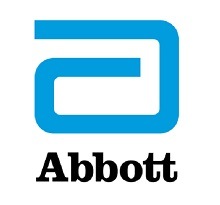 Abbott has announced late-breaking data from the AVEIR conduction system pacing (CSP) acute clinical feasibility study, demonstrating the safety and performance of the company’s investigational Aveir CSP leadless pacemaker technology. According to Abbott, the study is the “world’s first” assessment of a leadless pacemaker delivering conduction pacing to the heart’s left bundle branch (LBB) area—a novel pacing approach designed to mimic the heart’s natural electrical rhythm.
Abbott has announced late-breaking data from the AVEIR conduction system pacing (CSP) acute clinical feasibility study, demonstrating the safety and performance of the company’s investigational Aveir CSP leadless pacemaker technology. According to Abbott, the study is the “world’s first” assessment of a leadless pacemaker delivering conduction pacing to the heart’s left bundle branch (LBB) area—a novel pacing approach designed to mimic the heart’s natural electrical rhythm.
The results were delivered as a late-breaking clinical trial presented at the 2025 Heart Rhythm Society (HRS) annual meeting (24–27 April, San Diego, USA) and simultaneously published in the journal Heart Rhythm.
The AVEIR CSP acute clinical feasibility study demonstrated successful implantation of the Aveir CSP leadless pacemaker deep into the wall separating the left and right chambers of the heart, with many achieving LBB area pacing. All study participants received the Aveir ventricular (VR) leadless pacemaker at the end of the procedure.
“For the first time, we have successfully demonstrated the feasibility of a leadless pacing system to facilitate conduction system pacing in the left bundle branch area of the heart, offering a novel approach to pacing therapy,” said Vivek Reddy (Mount Sinai Hospital, New York, USA), the study’s principal investigator. “Leadless pacing has already demonstrated significant benefits to patients. This new groundbreaking approach may enable a more physiologic way of stimulating the heart with Abbott’s Aveir CSP leadless pacemaker system, giving patients more treatment options.”
In an effort to maximise potential benefits to patients, Abbott is developing two unique approaches to CSP, focusing on targeting the LBB area with both traditional pacing and leadless technology.
In addition to completing the AVEIR CSP acute clinical feasibility study, Abbott recently started enrolling the first patients in the ASCEND CSP pivotal clinical trial. This trial will evaluate the safety and effectiveness of the investigational CSP implantable cardioverter-defibrillator (ICD) lead three months post-implant, and will enrol up to 414 patients across 70 sites worldwide, including in the USA, Canada, Europe and the Asia-Pacific region. This uniquely designed lead aims to reduce complications, enhance pacing precision, and improve long-term outcomes for patients requiring ICD therapy, according to Abbott.
The company claims that its UltiPace pacing lead is the first US Food and Drug Administration (FDA)-approved stylet-driven lead indicated for LBB area placement. Recently, the US FDA granted Breakthrough Device designations to both Abbott’s Aveir CSP leadless pacemaker system and the CSP ICD lead for LBB area pacing.
“Our ongoing innovation in conduction system pacing has the potential to drive meaningful advancements, offering new potential treatment options for people with slow or irregular heart rhythms,” said Randel Woodgrift, senior vice president of Abbott’s cardiac rhythm management business. “These two clinical studies underscore the critical importance of conduction system pacing in the left bundle branch area both with our breakthrough leadless technology and uniquely designed lead, enabling physicians to better treat a broader range of patients who require pacemaker and ICD therapies.”









